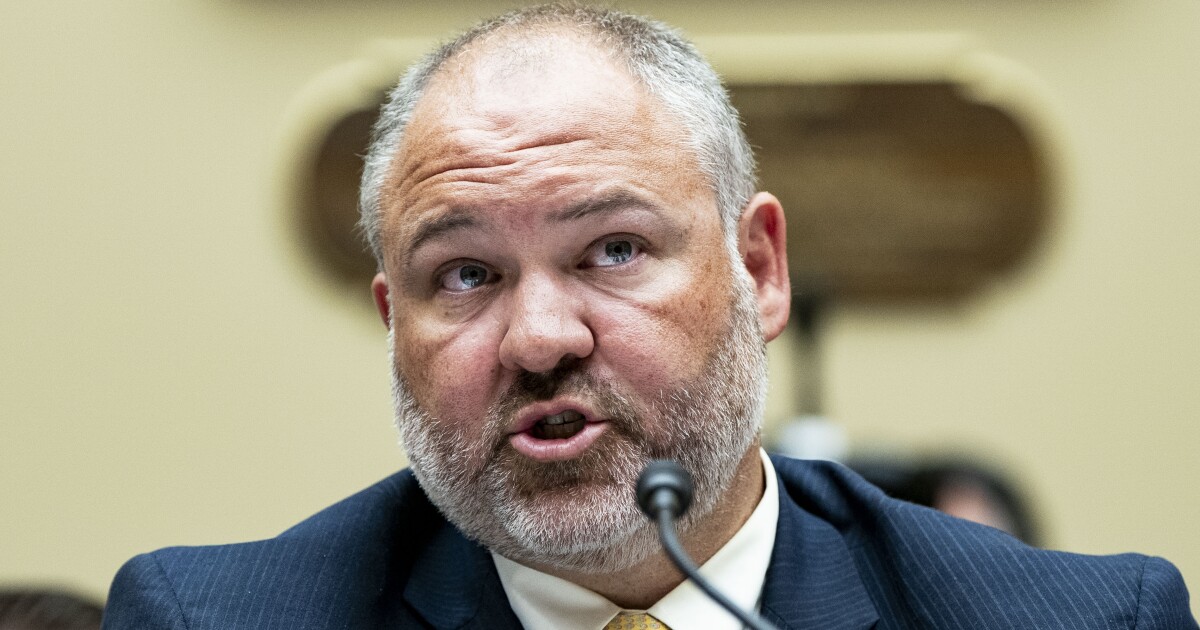Gary Shapley, a former special agent in the Internal Revenue Service’s Criminal Investigation division who investigated Hunter Biden’s taxes and testified before Congress about interference, will reportedly be named acting commissioner of the IRS after the resignation of the current acting commissioner, Melanie Krause.
Shapley and a fellow special agent, Joseph Ziegler, testified in 2023 before the House Oversight Committee that then-President Joe Biden’s son Hunter received preferential treatment during a tax-evasion investigation, and they had been removed from the investigation after complaining to their supervisors in 2022.
Both of them were promoted last month to senior advisors to Treasury Secretary Scott Bessent, and Shapley was made deputy chief of IRS Criminal Investigation. Now he will reportedly become acting commissioner, according to the Washington Post and CBS News. He will be replacing Krause, who accepted a voluntary buyout offer under the IRS’s deferred resignation program after a dispute over sharing confidential taxpayer data with immigration authorities at the Department of Homeland Security’s Immigration and Customs Enforcement division.
Senate Judiciary Committee chair Chuck Grassley, R-Iowa, hailed the decision to name Shapley as acting IRS commissioner with a post on X saying, “It’s GR8 NEWS whistleblower Gary Shapley will b taking over as Acting IRS Commissioner Pres Trump’s administration is catching on 2 my advice not only shld WBs who faced retaliation b reinstated they shld b PROMOTED Need more patriots like Gary in leadership.”
The IRS referred inquiries to the Treasury Department, which did not immediately respond to a request for comment.
The acting IRS commissioner post has been a revolving door in recent months. Krause, who was chief operating officer at the IRS, took the job in February following the abrupt retirement of former acting commissioner Douglas O’Donnell and the departure of the previous commissioner, Danny Werfel, in January. President Trump had named former congressman Billy Long, R-Missouri, as the next IRS commissioner even before his inauguration, prompting Werfel’s departure on Inauguration Day. However the Senate has not yet held a confirmation hearing for Long.
Shapley and Long will be overseeing a series of planned reductions in force of the IRS of up to 40%, according to the Federal News Network. According to an internal memo, the plan would reduce the IRS’s workforce of approximately 102,000 people to about 60,000 to 70,000. Among the parts of the IRS expected to take the heaviest cuts are the IRS Taxpayer Experience Office, Transformation Strategy Office, Online Services Office. Office of Civil Rights, Taxpayer Services and Compliance. Approximately 22,000 employees have already accepted the latest voluntary buyout offer under the IRS’s second deferred resignation program, according to Politico.


 Economics1 week ago
Economics1 week ago
 Economics6 days ago
Economics6 days ago
 Personal Finance6 days ago
Personal Finance6 days ago
 Accounting6 days ago
Accounting6 days ago
 Personal Finance1 week ago
Personal Finance1 week ago
 Economics7 days ago
Economics7 days ago
 Finance6 days ago
Finance6 days ago
 Personal Finance6 days ago
Personal Finance6 days ago











